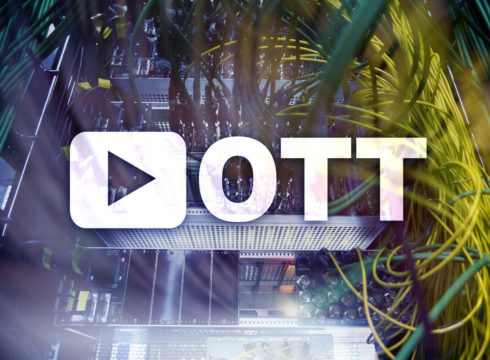SUMMARY
TRAI could charge carriage and licence fees from OTT services
Star India has said that TRAI does not have the authority to regulate OTT players
TRAI had released its draft OTT consultation paper in November 2018
Inc42 Daily Brief
Stay Ahead With Daily News & Analysis on India’s Tech & Startup Economy
Telecom Regulatory Authority of India (TRAI) is considering regulation of over-the-top (OTT) platforms that stream TV channels, including the likes of Hotstar, Airtel TV and Sony Liv, in line with a licensing framework similar to the one for TV channel broadcasters.
Television programming is licensed to registered broadcasters who are then allowed to provide the content to DTH or cable service providers, under a dedicated framework. “If a third party, like an app, is showing the same channels without paying carriage charges and licence fee, it creates disparity. Either both should be under the ambit of the licence, or both should be exempted,” ET quoted an unnamed senior official as saying.
In India, a broadcasting licence is valid for 10 years, and the licensee must comply with the programming and advertising code under the Cable Television Networks (Regulation) Act, 1995.
Last month, it was reported that TRAI is reportedly looking to tackle the “regulatory imbalance” between mobile phone companies and over-the-top (OTT) applications from the perspective of the telecom operators. TRAI chairman RS Sharma had said that currently, it is focussing only on the regulatory issues and economic concerns in the OTT consultation, related to services such as Facebook, WhatsApp and Google.
According to Sharma, the consultation has a limited scope as issues related to discriminatory pricing, and net neutrality has been dealt with. Telecom players have long complained that they have to comply with the law enforcement agencies and licensing rules, unlike the OTT players who do not currently have a regulatory regime, causing an imbalance.
Early Stages Of OTT Regulation In India
TRAI had released its OTT consultation paper on ‘Regulatory Framework for Over The Top (OTT) Communication Services’ in November 2018. The consultation paper was open for public comments until December 24, 2018.
In this paper, TRAI sought to examine the implications of the growth of OTT providers; the relationship between OTT players and telecom service providers (TSPs); the similarity, if any, between services provided by TSPs and OTT players; changes that may be required in the current regulatory framework to govern these entities; and the manner in which such changes should be affected.
A counter perspective, according to TV Ramachandran president at Broadband India Forum, is that OTT service providers should not be subject to fresh regulations since they are not comparable to the services offered by telecom operators, said TV Ramachandran, Broadband India Forum (BIF) President.
Star India, in its submission on the communication OTT paper, had said, “TRAI does not have the authority under the Act (Telecom Regulatory Authority of India Act, 1997) to regulate OTTs. The internet ecosystem, of which OTTs are an integral part, is governed and regulated by the Information Technology Act, 2000, and the rules notified thereunder.”
The company added that all internet companies are subject to the Competition Act, the Consumer Protection Act, and various intellectual property laws. “These legislative frameworks set the commercial and technical parameters and the legal boundaries for OTTs to conduct business in a market-based environment,” it said.
India’s internet traffic is estimated to grow at a CAGR of 32% till 2021. The total wireless data usage in India has already increased from 4.6 exabytes in 2016 to 20 exabytes in 2017. An average price per GB has also declined, from INR 75.57 per GB in 2016 to INR 12.06 per GB in 2018, which is the lowest in the world.
All this has fueled digital consumption which has brought this segment under regulatory scrutiny. A new battlefront now seems to be between DTH operators and OTT players.
Note: We at Inc42 take our ethics very seriously. More information about it can be found here.


